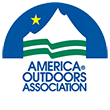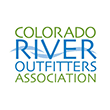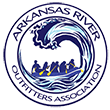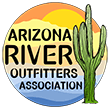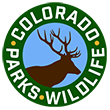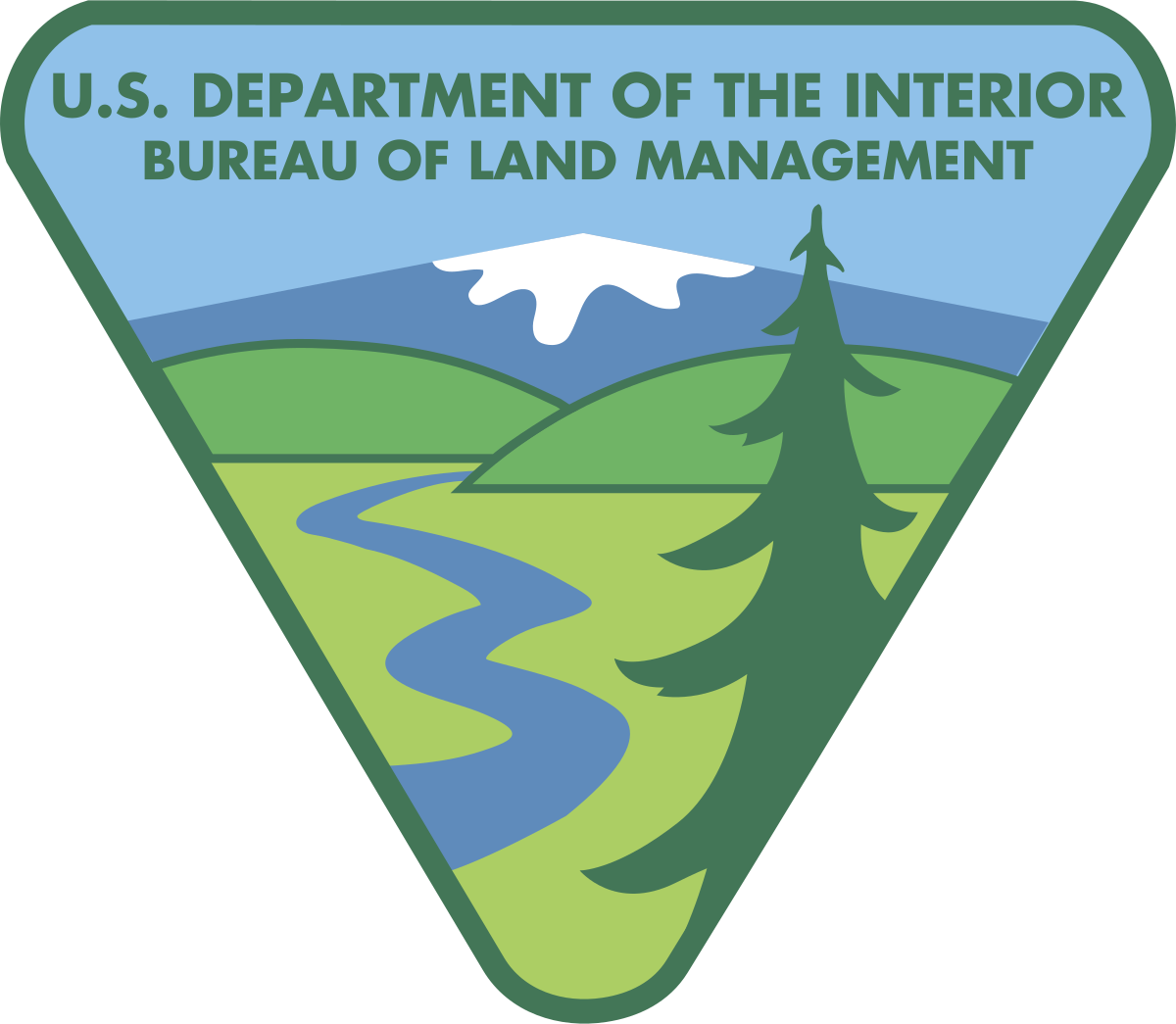Exercises to Prepare Yourself for Whitewater Rafting & Other Paddling Sports
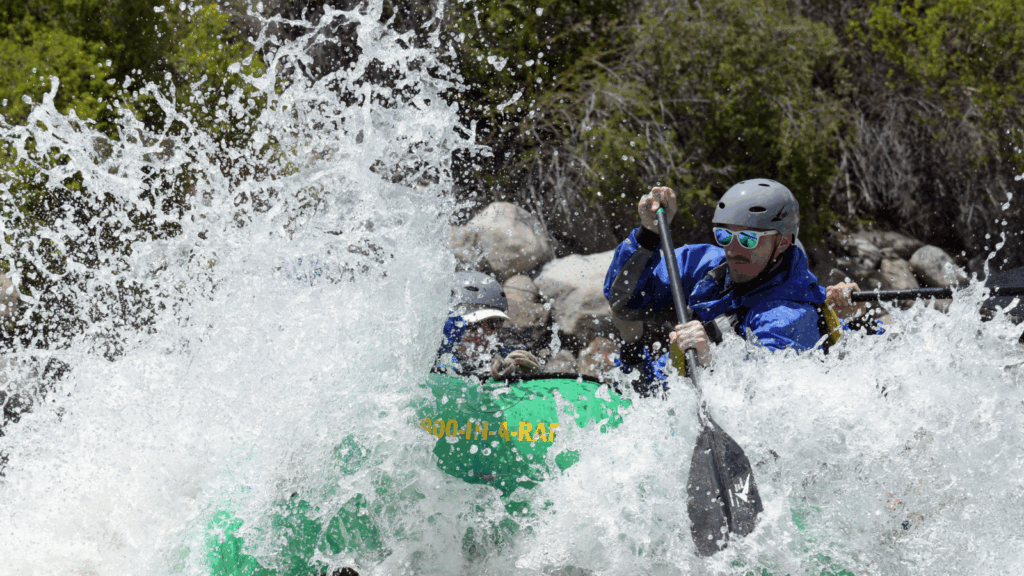
If it’s your first time or your 500th time whitewater rafting, canoeing, kayaking or rowing, preparing your body for the physical stamina and strength required will make your experience more enjoyable and your physique admirable. Similar to any other sport, working out and stretching specific core muscles makes paddling much easier and you’ll be less likely to injure yourself. Although these activities seem to only require your arms and upper body, you’ll actually be using your core a lot if you are paddling efficiently and to maintain your balance. Some people mistakenly focus only on their upper body and forget about their bottom half—Pro Tip: don’t forget to work out your legs since you only need them to hold up your upper half. Increasing Endurance Whitewater rafting, kayaking, and other paddling adventures require sustained energy and cardiovascular fitness. Without a strong endurance base, you’ll tire quickly and may struggle to keep pace with your group. The good news? You can train for it off the water with simple, effective workouts that boost stamina and heart health. Endurance Tips for Rafters and Kayakers: Incorporate Cardio Cross-Training: Biking, running, swimming, and rowing are all excellent low-impact ways to build cardiovascular endurance. Add Intensity with Intervals: Mix in short bursts like 30-second sprints, uphill climbs, or circuit-style training to push your aerobic capacity. Start Small, Then Build: Begin with just five minutes of steady cardio, and increase duration gradually as your stamina improves. Hydrate Before You Train: Pre-hydration is key—drink water beforehand to keep your body performing well throughout your workout. Fuel with Smart Carbs: Eat complex carbs like oatmeal, whole grain toast, or Greek yogurt with fruit before your session for sustained energy. Recover with Protein: After your workout, refuel with protein-rich snacks like a smoothie, peanut butter and banana, or a protein shake to aid recovery and muscle repair. Training your cardiovascular system before hitting the water ensures you’ll be ready to paddle strong, without gassing out in the first rapid. Increasing Strength Building strength is crucial for paddling power, endurance, and injury prevention. “Strength training is a key component of overall health and fitness for everyone,” and it “can also protect your joints from injury,” according to the Mayo Clinic. The more strength you have, the more water you can pull with each stroke—and your team will be counting on you to pull your weight. Whitewater rafting and kayaking rely heavily on your shoulders, arms, wrists, and core, so it’s important to get these muscle groups used to repetitive motion. Targeted strength training improves control, boosts stamina, and helps prevent common injuries like shoulder strain from overexertion. Top Strength Exercises for Rafters: Push-Ups: Strengthen your chest, shoulders, and triceps while engaging your core. Pull-Ups or Rows: Develop back and arm muscles for stronger strokes and better posture. Overhead Press: Boost shoulder endurance for long paddling days. Planks: Build core stability, which helps with balance and bracing in the raft. Tricep Dips: Improve arm control for quick, precise movements. Aim to train 2–3 times per week using bodyweight or light weights. Focus on form and endurance over heavy lifting. Strong muscles won’t just improve your performance—they’ll help prevent injury and keep you paddling longer. Prior to strength building, consume some low GI carbs and protein like a spinach and egg omelet or a smoothie with protein powder. Always pre-hydrate. Follow up your exercises with a chocolate protein shake or half of an avocado with cheese and tomato and a healthy serving of water. Increase Flexibility Building strength and endurance is essential—but it won’t mean much if an injury takes you off the water. To stay healthy and paddle-ready, flexibility and proper recovery are just as important. Incorporating dynamic warm-ups, cooldown stretching, and good hydration habits can go a long way in preventing cramps, strains, and fatigue. Stretching and Injury Prevention Tips: Warm Up First: Get your body moving with 5 minutes of light cardio before stretching—this helps loosen muscles and prevents strain. Stretch During Cooldowns: After workouts, dedicate time to slow, controlled stretching to increase flexibility and reduce soreness. Target Key Areas: Focus on shoulders, arms, back, and hips—muscles most used in paddling. Cross-body arm stretches and shoulder rolls are especially effective. Improve Posture: Standing and sitting with good posture keeps your spine aligned, engages your core, and prevents lower back discomfort during long paddling sessions. Hydrate to Prevent Cramps: Not drinking enough water before or after activity can lead to muscle cramps and fatigue, so keep that water bottle handy. Adding flexibility and recovery practices to your training routine helps you stay limber, reduce your risk of injury, and show up ready for adventure every time you hit the river. Heading to the Water Before you jump right into the water, take a moment to warm up your muscles whether it’s jogging, sprints, or lunges. Then stretch your shoulders, arms, wrists, legs, and back. This way, your muscles are loose and ready to rock and roll. Make sure your reusable water bottle is filled, you’ve had a few swigs of that, and your snack is safe in your belly. Protect your skin by applying a water-resistant sunscreen to prevent painful burns from the sun reflecting off the water. If you’re wearing sunglasses (recommended), use a strap on the arms so you don’t risk losing them if they fall off. Lastly, get your helmet and life jacket on, have fun and enjoy whitewater rafting, kayaking, canoeing or rowing as you’re feeling stronger and more flexible. Check out the white water rafting trips we have available at Wilderness Aware Rafting or contact us for more information. See you on the river! FAQ’s for Preparing Yourself for Whitewater Rafting Why is strength training important for whitewater rafting? Strength training builds the upper body and core muscles needed for powerful, controlled paddling. It also helps prevent injuries like shoulder strain by preparing your muscles for the repetitive motions of rafting. What are the best exercises to prepare for paddling sports? Effective exercises include
8 Facts You Didn’t Know About the Arkansas River
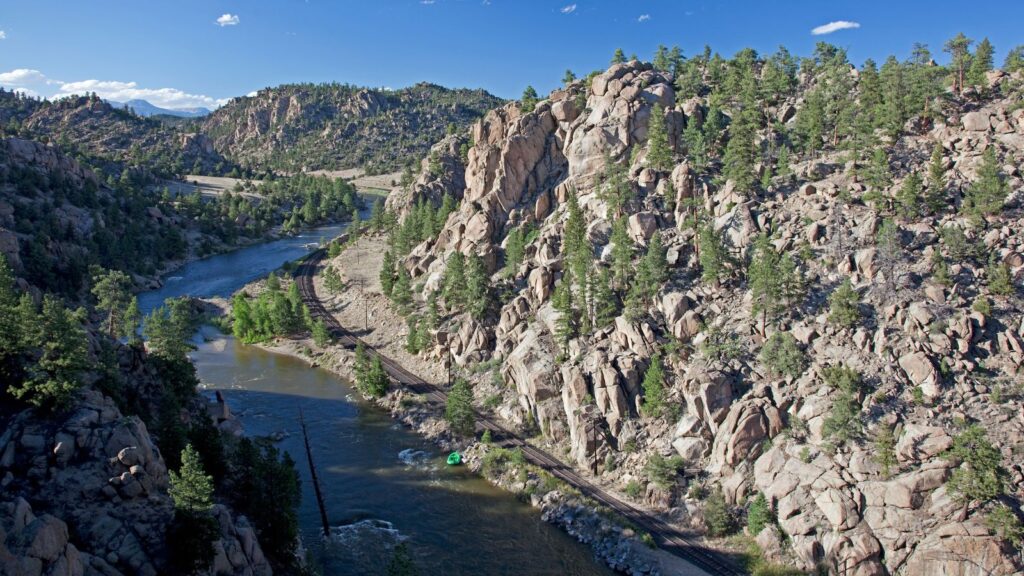
Facts about the Arkansas River are as fascinating as the thrilling rapids it offers. This iconic waterway has played a key role in shaping both American history and the landscape of modern adventure. While many are familiar with the Arkansas River for its world-class rafting, few know about its rich historical significance and unique geological features. Since 1976, Wilderness Aware Rafting has been navigating these waters, gaining deep knowledge of the river’s currents, history, and hidden treasures. From early exploration and settlement to the powerful rapids of today, here are eight surprising facts about the Arkansas River. Table of Contents 1. It Was Once Part of the U.S.-Mexico Border From 1819 to 1848, the Arkansas River served as the official boundary between the United States and Spanish-controlled Mexico. After the Treaty of Guadalupe Hidalgo, the U.S. expanded, and the river no longer marked the border, but its historical significance remained. 2. A Gateway for the Gold Rush During the 1859 Colorado Gold Rush, prospectors followed the Arkansas River into the Rocky Mountains in search of fortune. The river became a critical travel route, leading settlers toward what is now Leadville, Colorado, a major mining town. 3. It’s the Sixth-Longest River in the U.S. Spanning 1,469 miles, the Arkansas River originates in the Sawatch Range of Colorado and flows through Kansas, Oklahoma, and Arkansas before joining the Mississippi River. 4. Steamboats Once Traveled Its Waters In the 1800s, steamboats navigated the lower Arkansas River, transporting goods and people deep into the heart of the frontier. However, the river’s unpredictable water levels made it difficult for consistent travel, limiting its long-term use for shipping. 5. It Played a Role in the Railroad Boom The Arkansas River became a battleground for railroad companies in the late 1800s. The Royal Gorge War was a heated conflict between the Atchison, Topeka & Santa Fe Railway and the Denver & Rio Grande Railroad, both fighting for the rights to lay tracks through the Royal Gorge for better access to the mining towns of Colorado. 6. It’s Home to One of the Most Famous Rafting Destinations The Arkansas Headwaters Recreation Area (AHRA) is one of the most popular whitewater rafting destinations in the country. Featuring legendary rapids like Browns Canyon, The Numbers, and Royal Gorge, the river attracts thrill-seekers from around the world. 7. Indigenous Tribes Relied on the River for Centuries Long before European exploration, the Ute, Pawnee, Osage, and Comanche tribes depended on the Arkansas River for food, trade, and travel. The river played a crucial role in sustaining indigenous communities throughout the region. 8. The River’s Name Comes from Native American Origins The name “Arkansas” originates from the French pronunciation of the word used by the Quapaw tribe, a Native American group that lived near the river’s mouth. Early French explorers documented their name for the region, and it eventually became associated with the river itself. At Wilderness Aware Rafting, we don’t just run trips on the Arkansas River—we live and breathe the Arkansas River’s history. Our guides are not just fun, engaging and high caliber, they have a wealth of knowledge about human history, the natural world, and love to share their passion for the outdoors! With over 40 years of experience leading rafting adventures, our guides are experts in the rapids, landscape, and fascinating stories that make this river one of the most exciting in the country. Join us for an unforgettable adventure and we’ll explore the Arkansas River—its rich history, stunning natural beauty, and thrilling whitewater rapids!
How to Adjust to Altitude Changes (and Not Get Sick)
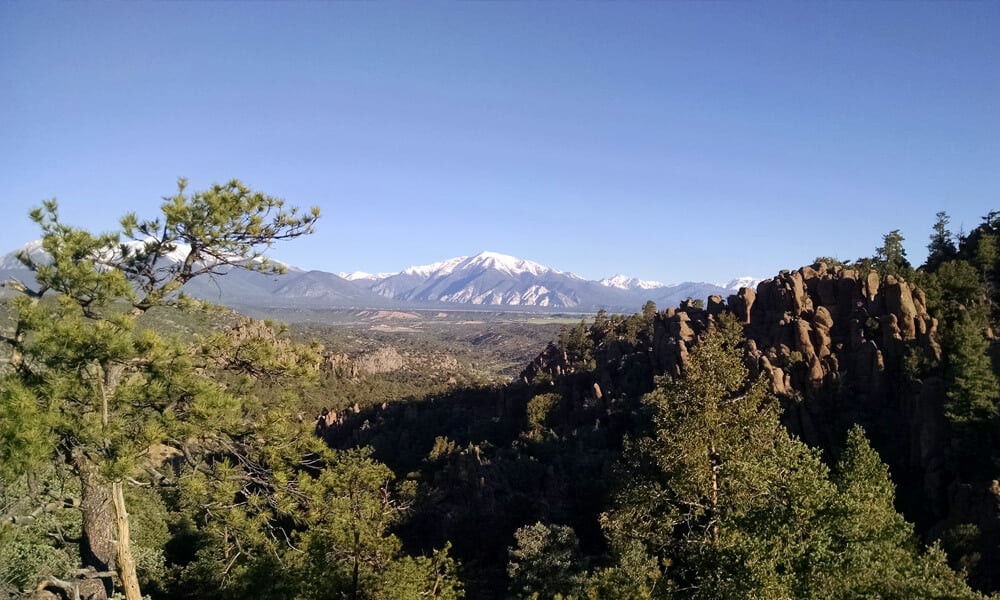
Wondering how to adjust to altitude sickness and not get sick? We’ve got 9 tips to help you adjust to altitude and stay healthy at higher elevations. From boosting your water intake and getting plenty of rest to easing into physical activity and increasing your potassium levels, these simple steps can help reduce your chances of getting sick. Keep reading for the full list! Table of Contents There’s no need to end the fun and leave the mountain to alleviate your altitude sickness – this handy guide will help! Here’s how to adjust to altitude changes so you can focus on enjoying your trip. You don’t have to hit the slopes or visit Peru to start feeling the pain from altitude sickness. Whether it’s shortness of breath, nausea, or exhaustion, it can totally wreck your trip. Here’s how you can adjust to altitude quickly and safely, so you can get on to having an amazing trip. What is Altitude Sickness? As you’re going higher in elevation, you start taking less oxygen per breath – this causes altitude sickness. According to the CDC, “If you plan to travel to an elevation higher than 8,000 feet above sea level or higher, you may be at risk for altitude illness, which is caused by low oxygen levels in the air.” – Center for Disease Control and Prevention The process starts at around 5,000 feet, and as you go higher (about 9,800 feet), the odds of experiencing altitude sickness increase substantially. At that altitude, about 75% of people will feel some symptoms. If you’ve never experienced a substantial gain in elevation, chances are you’ll notice some changes in how you’re feeling. Thankfully, there are ways to prepare your body for adjusting smoothly. One thing to note: it’s not just going to these heights that causes the problem – it’s caused more by the speed of ascent. The best way to avoid altitude sickness is to gain elevation slowly, which allows your body to acclimate to the change in elevation. How Long Does It Take to Adjust to Altitude Changes? Your body can take a few days—or even a couple of weeks—to fully adjust to higher altitudes. How long it takes depends on a few things: How high you’re going Your personal genetics Your fitness level How fast you climbed to that altitude What Type of Symptoms Might I Experience? Fortunately, serious symptoms like High Altitude Pulmonary Edema (HAPE) or High Altitude Cerebral Edema (HACE) only happen at extremely high altitudes, far higher than most people will ever go. You are more likely going to experience milder symptoms such as shortness of breath, headaches, and other annoying (but certainly not debilitating) symptoms. How to Adjust to Altitude 1. Drink Lots of Water As you gain altitude, your body tends to lose water and salt faster than you’re used to. When combined with the dry air and physical activity a trip to Colorado usually involves, it’s no wonder dehydration is such a problem. Many of the symptoms of altitude sickness mirror those of dehydration, so consistently drinking water throughout the day goes a long way to getting you acclimatized quickly. 2. Reduce Your Exercise As you gain elevation, the air gets thinner so each breath you draw contains less oxygen. Over time, your body strengthens and adjusts to accommodate this, which is why endurance athletes often train at extremely high altitudes in places such as Peru or Nepal. In the short term, however, your cardiovascular system is working harder. Each breath contains less oxygen, so each heartbeat contains less oxygen, making your heart beat faster. In other words, your body is working harder to do the same thing you would do at sea level. In order to give your body time to adjust, it’s best to take it easy for a few days when you first get to 5,000+ feet. After a few days of moderate activity, you’ll be ready to ramp back up to full throttle. 3. Get Enough Sleep One of the symptoms of altitude sickness is insomnia, so it can be hard to get enough rest. However, a good night’s sleep can do wonders to help you kick the problem. One common suggestion is descending to a lower elevation (if possible) to sleep at night. If this isn’t an option, it’s best just to push on and get through the first few days of acclimation. Don’t underestimate the power of a little cat nap if you can sneak one in during your day! 4. Limit Your Alcohol Intake Alcohol hits a lot harder when you’re trying to acclimatize, so the best thing you can do is take it easy and not drink your first few nights in town. Alcohol often replicates many of the symptoms of altitude sickness (nausea, dizziness, fatigue, light-headedness) so it’s a bit like doubling down on your body in terms of a negative impact. Another reason to lay off on drinking is because of the general challenge it is to stay hydrated while acclimatizing to a higher altitude. Alcohol dehydrates you, so consuming it only worsens your hydration situation. Your safest option is waiting 48 hours before you hit the bars. After this period, you should be acclimatized enough to handle the effects of drinking at altitude. 5. Increase Your Potassium Levels Potassium loss is a pretty standard symptom if you’re feeling dehydrated from the dry air at elevation. It can be a major pain – literally. Muscle cramping is commonly associated with low potassium levels. Fortunately, it’s an easy nutrient to replace. Foods like bananas, avocados, spinach, yogurt, and kale are all high in potassium so getting enough without supplements shouldn’t be too hard (even for the pickiest of picky eaters). 6. Protect Yourself From the Sun At altitude, the air is thinner and as a result, there’s more exposure to the sun. Denver, for example, with an altitude of only one mile (5,280 feet), receives 25% less natural protection from the sun than you’d find at
Bachelor & Bachelorette Party Rafting Trips in Colorado
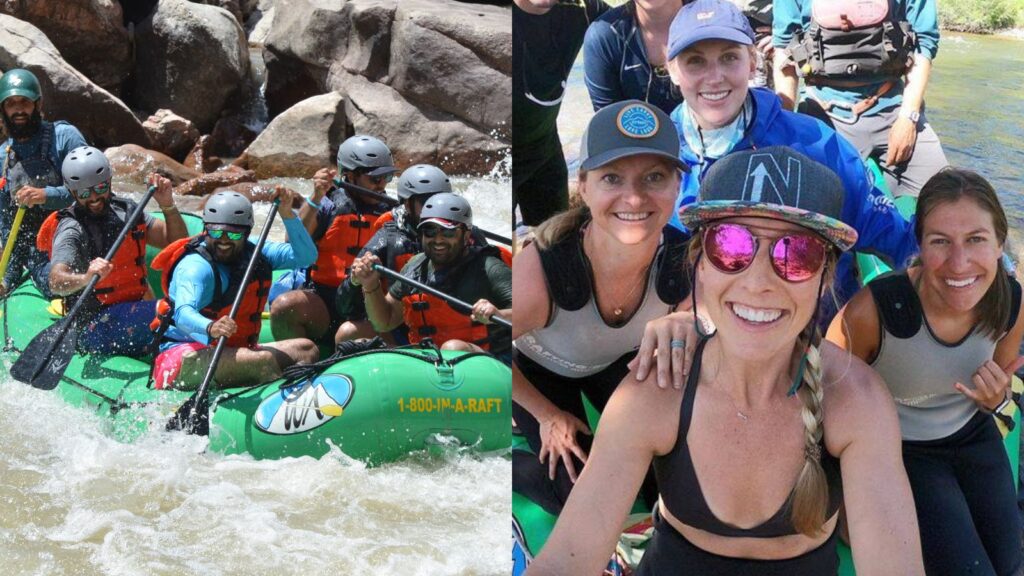
Before taking on one of life’s biggest adventures, why not plan a bachelor or bachelorette party rafting trip in Colorado? It’s an unforgettable experience. Whitewater rafting offers a fun alternative to the traditional booze-fueled weekend in Vegas. Our trips cater to everyone—from Class V adrenaline junkies to those seeking a laid-back float. Plus, we handle ALL the planning. All we need from you is a date! Why Take Your Bachelor or Bachelorette Party Rafting? 1) Make It a Party to Remember Be the friend whose bachelor or bachelorette party everyone still talks about years later. Whitewater rafting is a one-of-a-kind adventure. Once you step into the raft, it’s you, your crew, and the journey ahead. Whether it’s a one-time celebration or the start of a new tradition, this is a party no one will forget. 2) Trips Are Highly Customizable at an Affordable Price Our guides love hosting bachelor and bachelorette parties and will accommodate special requests to make your trip unforgettable. Want to surprise the bride or groom with their favorite Colorado microbrews at camp? Or perhaps have a spread of cupcakes and champagne waiting at the take-out? We can make it happen! With over 48 years of experience, we’ve hosted countless parties and always have fresh ideas. If you need inspiration, ask one of our reservations specialists—they love party planning! With trips starting at just $79, you can create an unforgettable experience without the hefty price tag. 3) Easy Peasy Planning, Let Us Handle It To pull off the perfect Colorado whitewater rafting bachelor or bachelorette party, all we need from you is a date. The moment your group arrives at our Buena Vista headquarters, we take care of everything. We provide all the gear you’ll need, plus fun souvenirs like waterproof disposable cameras or necklace koozies. We also handle shuttle logistics, meals, and any special requests to make this the best party ever. 4) Trips for Everyone From Beginners to Experts As one of the first whitewater rafting outfitters in Buena Vista and the Arkansas Valley, we’ve hosted countless bachelor and bachelorette parties. Over the years, we’ve expanded our selection of trips. You can choose from easygoing float trips to ultra-extreme Class V adventures. We offer half-day to five-day rafting and camping trips. Want more excitement? Add horseback riding or zip-lining to your adventure. We’ll handle all the planning so you can focus on the fun! What Our Customers Saying There’s no better way to trust an epic trip than hearing from those who’ve been there. Our bachelor and bachelorette groups come for the thrill but leave with memories to last a lifetime. From adrenaline-pumping rapids to laughter-filled nights around the campfire, our guests rave about the unique experience rafting offers for any pre-wedding celebration. Here’s what some of our past guests had to say: “We just finished a three day rafting and camping trip with Wilderness Aware out of Buena Vista, Co. Our Guides, Ashley and Gomez were great. They did a great job explaining the river and keeping us informed of what rapids were coming up. Wilderness Aware guides work extremely hard to ensure you have a great experience. They offer a ton of different trip options so if camping is not your jam you can stay in your choice of accommodations. We will definitely be back. – Brian Detherage, via a 5-Star Google Review “Amazing time rafting different parts of the Arkansas River! We did the 4- day Inn to Inn trip and felt like VIP’s! 5-Stars all around from accommodations, food and fun! Our guide Ashlynn was a true professional! Enjoyed every minute! – Shar Carson, via a 5-Star Google Review “Great trip, Ashley was a great guide. Would highly recommend WAR to anyone looking for a great experience.” – John Randels, via a 5-Star Google Review
The Ultimate Guide to Camping Near Buena Vista, Colorado
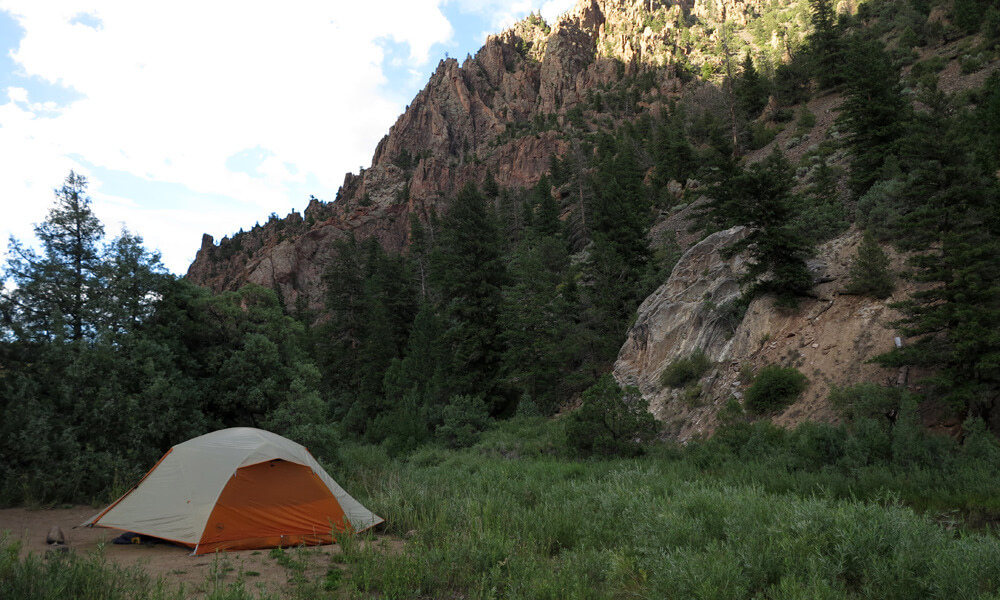
Looking for camping near Buena Vista? You’ve come to the right place! Nestled in the heart of the Colorado Rockies, Buena Vista is a charming town known for its stunning natural beauty and its reputation as an outdoor adventure hub (checkout Browns Canyon white water rafting). With its proximity to the Arkansas River and the surrounding mountains, Buena Vista offers a plethora of camping options, from established campgrounds to dispersed camping areas. Whether you’re seeking a peaceful retreat or an adrenaline-filled adventure, Buena Vista has something for everyone. In this guide, we’ll explore the best camping near Buena Vista, including dispersed camping near Buena Vista, CO and Arkansas River camping. Camping near Buena Vista 1. Arrowhead Point Campground and RV Park Located just south of Buena Vista, Arrowhead Point Campground and RV Park is nestled in a picturesque setting with stunning views of the surrounding mountains. It offers a variety of camping options, including RV sites, tent sites, and cabins. The campground features amenities such as full hookups, hot showers, laundry facilities, a swimming pool, a playground, and a camp store. It’s a great choice for families and groups looking for a well-equipped campground. 2. Cottonwood Lake Campground Located just west of Buena Vista, Cottonwood Lake Campground offers a serene camping experience. With picturesque views of the lake and the surrounding peaks, this campground is a popular choice for anglers and nature lovers. Amenities include picnic tables, fire rings, vault toilets, and potable water. 3. Chalk Creek Campground Situated along Chalk Creek, this campground offers a tranquil setting with stunning mountain vistas. It features spacious campsites, fire pits, picnic tables, and vault toilets. Enjoy fishing in the creek or simply relax and take in the natural beauty that surrounds you. 4. Mt. Princeton RV Park For those looking for a more comfortable camping experience, Mt. Princeton RV Park offers full-hookup RV sites and tent camping options. The park boasts amenities such as hot showers, laundry facilities, a playground, and a game room. It’s an excellent basecamp for exploring the area’s attractions. 5. Snowy Peaks RV Park If you’re looking for cushy camping near Buena Vista with modern amenities, Snowy Peaks RV Park is an excellent choice. It offers full-hookup RV sites, tent sites, and even cozy cabins for rent. The park provides amenities like hot showers, laundry facilities, a playground, a dog park, and a camp store. With its convenient location near Buena Vista, you can easily explore the town’s attractions and outdoor activities. Dispersed Camping near Buena Vista, CO Buena Vista offers plenty of dispersed camping opportunities in the nearby national forests. Please remember to follow regulations and practice Leave No Trace principles. Some popular dispersed camping areas include: Fourmile Recreation Area Baldwin Lake Cottonwood Pass Road Arkansas River Camping The Arkansas River is a renowned destination for water enthusiasts. Several campgrounds provide easy access to the river for fishing, kayaking, and rafting adventures. Ruby Mountain Campground: Located near the town of Nathrop, Ruby Mountain Campground offers riverfront Arkansas River camping spots. It’s a great option for rafters and anglers seeking an exciting riverfront experience. The most scenic Arkansas River camping spots are best accessed via raft during a multi-day rafting trip. Wilderness Aware Rafting offers unforgettable multi-day rafting adventures, ranging from 2 to 5 days, where you can immerse yourself in the river’s splendor and enjoy camping along its banks. Arkansas River camping just doesn’t get better than that! It’s true that to discover the best camping near Buena Vista, you’ll have to take the road less traveled. And by road we mean… river! Wilderness Aware offers multi-day Browns Canyon rafting trips that combine camping with thrilling rafting adventures. Our expert guides will ensure that your experience is filled with excitement, natural beauty, and unforgettable Arkansas River camping. Discover Colorado white water rafting with Wilderness Aware!
Five Reasons Why You Should Take Your Family Rafting ASAP
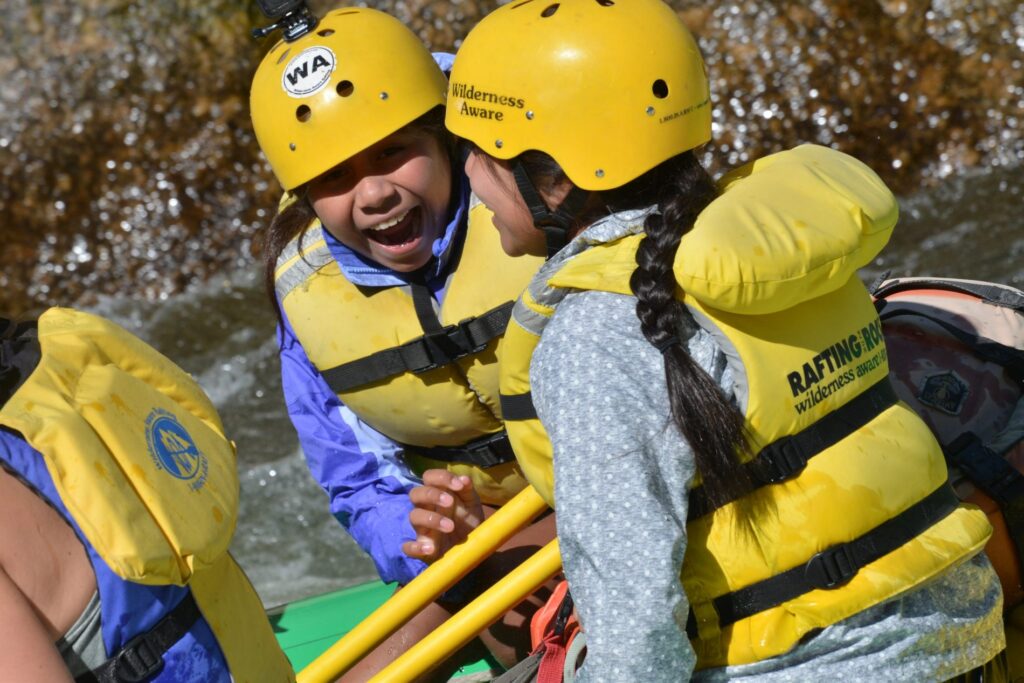
Now that the river’s flow has dipped from high water, it’s the ideal time to bring the kids! From bonding with your loved ones to experiencing the thrill of the rapids, we’ll show you why it’s the perfect time to plan your family rafting trip. Let’s dive in and discover the excitement waiting for you on the water! Top 5 Reasons to Take Your Family Rafting Experience teamwork Gain a love of the outdoors Develop self-confidence Learn about the history of the area Develop a whole new cool vocabulary, like chickie pail and PFDs. Bonding Beyond Boundaries Rafting isn’t just about navigating the rapids; it’s about navigating the bonds within your family. Imagine the joy of sharing laughter and thrills as you conquer the waters together. This reason is all about strengthening connections and creating those heartwarming family moments that last a lifetime. Age Generally, trips are designed for ages 4 and up. But, this depends on water levels and the class of rapids. Each of our Colorado rafting trips has a different minimum age that is related to how challenging the whitewater is, so check detailed trip info to see if your kid can come along. Safety Whitewater rafting has inherent risks, but the risk is greatly reduced if you work with a reputable rafting company, like Wilderness Aware Rafting. Every one of our guides undergoes more training than is required in Colorado to ensure that they know how to lead a safe trip, and what to do if anything goes wrong. Choose the Right River Arkansas River rafting is ideal for families! Beginning high in the Colorado Rockies near the Continental Divide, the Arkansas River delivers more than 100 miles of whitewater – making it the most popular rafting river in the West. The Arkansas River’s appeal lies in its wide variety of trips and easy accessibility. Embark on Family Adventure with Lower Browns Canyon Half-Day Trip Discover the thrill of white water rafting tailored for beginners and families on Lower Browns Canyon Half-Day Trip. Starting downstream of challenging rapids, this excursion is perfect for children as young as four, grandparents, and rafting novices. The fast-paced river guarantees just enough excitement, offering some of Colorado’s best family rafting. Enjoy scenic views of Collegiate Peaks and lush pastures, all while creating unforgettable memories. Our Lower Browns Canyon trip brings the joy of rafting without intimidating rapids, making it the ideal adventure for every family member. Take a short drive from Denver or Breckenridge and experience the best beginner and family whitewater rafting in Colorado! Do you have older kiddos? Pro tip: book an overnight Colorado rafting trip and get the bonus of sleeping under the stars. Being on the river together is an incredible bonding experience that also brings lots of smiles. This trip is perfect for ages 8+. At Wilderness Aware, we’ve been the heartbeat of Colorado white water rafting adventures since 1976, and we’re thrilled to have shared the exhilarating world of family rafting with you. As the premier outfitter in Buena Vista, we understand the transformative power of the rapids—the rush, the laughter, and the shared triumphs that families experience on our guided trips. We invite you to join us on the river and create your own unforgettable moments. From our family to yours, we can’t wait to welcome you aboard for a Buena Vista white water rafting adventure that goes beyond the ordinary. Seize the opportunity, make a splash, and let the memories flow!
Dolores River Flow Outlook – 2023 Boating
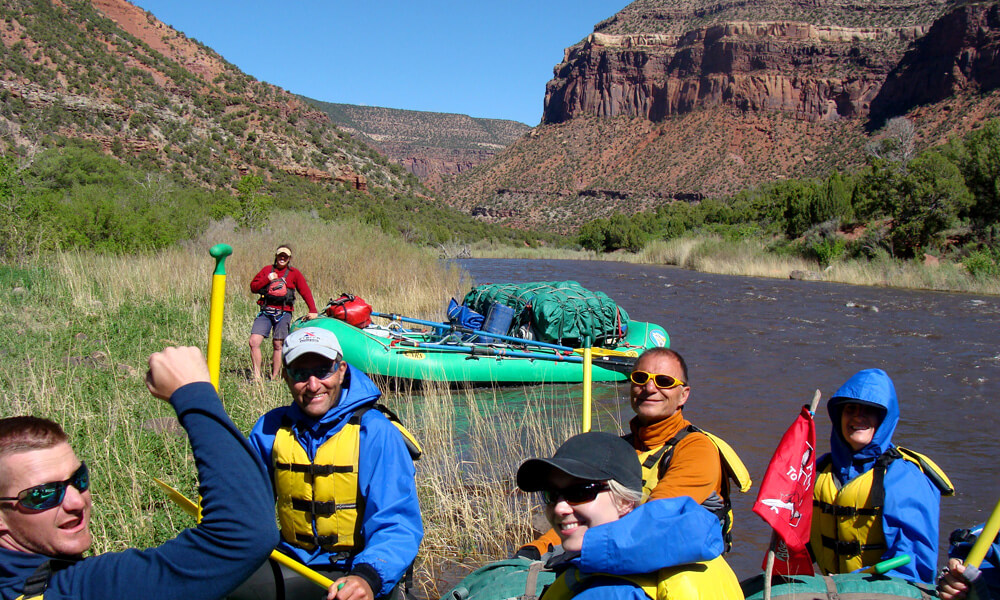
If you’re a fan of remote, uncrowded river trips, the Dolores River needs to be high on your bucket list. However, due to low Dolores River flow water levels, the river has been unavailable to rafting for several years. But with recent heavy snowfall in the San Juan Mountain Range, the Dolores River has once again opened to boaters for the 2023 season! Join us as we explore the Dolores River and provide everything you need to know to plan your next adventure. Dolores River Boating Outlook Heavy snowfall in the region has raised the Dolores River’s water levels, making it possible for boaters of all types, from rafts to kayaks, to return to the river in 2023. The Dolores River flows are projected to be around 2000 – 3000 cubic feet per second (cfs) for most of the season, with peak flows in May and tapering off in June. The Dolores river rafting and kayaking season is expected to run from late April through mid-June or longer. History of the Dolores River Canyon The Dolores River canyon runs through Colorado and Utah, originating in the San Juan Mountains and ultimately flowing into the Colorado River. The river was named by Spanish explorers, who called it “El Rio de Nuestra Senora de los Dolores,” which translates to “The River of Our Lady of Sorrows.” The Dolores River is also known for the McPhee Dam, which was constructed in the 1980s to provide water for nearby towns and agricultural operations. The dam has had a significant impact on the river’s flow, as it diverts a significant amount of water from the river for storage. Highlights of a Dolores River trip A trip down the Dolores River Canyon is a true wilderness adventure. Boaters can expect to encounter thrilling rapids, stunning scenery, and a variety of wildlife with three sections distinctly different from each other. The river begins its journey to the Colorado River just below McFee Reservoir and enters Ponderosa Gorge defined by its dense Pine and Douglas Fir forest, steeper river gradient and the infamous Snaggletooth rapid. Along with the spectacular natural environment, the Gorge features interesting human history with ancient Anasazi ruins that can be explored along the river. After a 3 day journey, the river changes character in Slick rock Canyon or Little Glen Canyon, which is reminiscent of the now flooded Glen Canyon under Lake Powell with its stunning sandstone geology, and tamer waters. This section of river is being studied as a potential wilderness area featuring numerous side canyons. Opportunities to hike and discover petroglyphs along canyon walls provide evidence of the Anasazi and Ute people who lived in these areas long before modern day settlers. The final section of the Dolores from Bedrock to the confluence with the Colorado River features bigger rapids including Stateline – a long continuous class IV rapid that raises the excitement level! Amazing side canyon hikes are prevalent and rival those found in the Grand Canyon. All three sections together comprise one of the longest stretches of continuous whitewater rafting in the continental United States with 170 miles of river. This execration which can take 10 day trip through the Dolores River’s Gateway Canyon that many compare to a trip down the Grand Canyon. Planning Your Trip Wilderness Aware is excited to announce Dolores River rafting trips are now open for booking for the 2023 season from now until mid-June. Our experienced guides will lead you on a once-in-a-lifetime adventure down the Dolores River, providing all the necessary equipment and expertise, including outstanding meals and riverside camping along the way. We offer Dolores River multi-day trips of 3, 6 or up to 10 days, so you can choose the option that works best for you. If you’re interested in embarking on a private boating trip, it’s important to note that a Dolores River permit is required for any launch on the Dolores River. Permits are issued through a lottery system and can be obtained through the Bureau of Land Management. Be sure to plan ahead, as Dolores River permits can be difficult to obtain. The Dolores River is an incredible wilderness adventure that should not be missed. This hidden gem of a river is on par with some of the most popular whitewater rivers in Arizona and Idaho. With the recent increase in Dolores River flow water levels, the river has once again opened for rafting in 2023. Learn more about Dolores River rafting and book your adventure with Wilderness Aware Rafting to experience the thrill of the rapids, the beauty of the scenery, and the peace of mind that comes with having an experienced guide leading the way. We look forward to sharing this incredible river with you!
Spring Multi-Day Trips
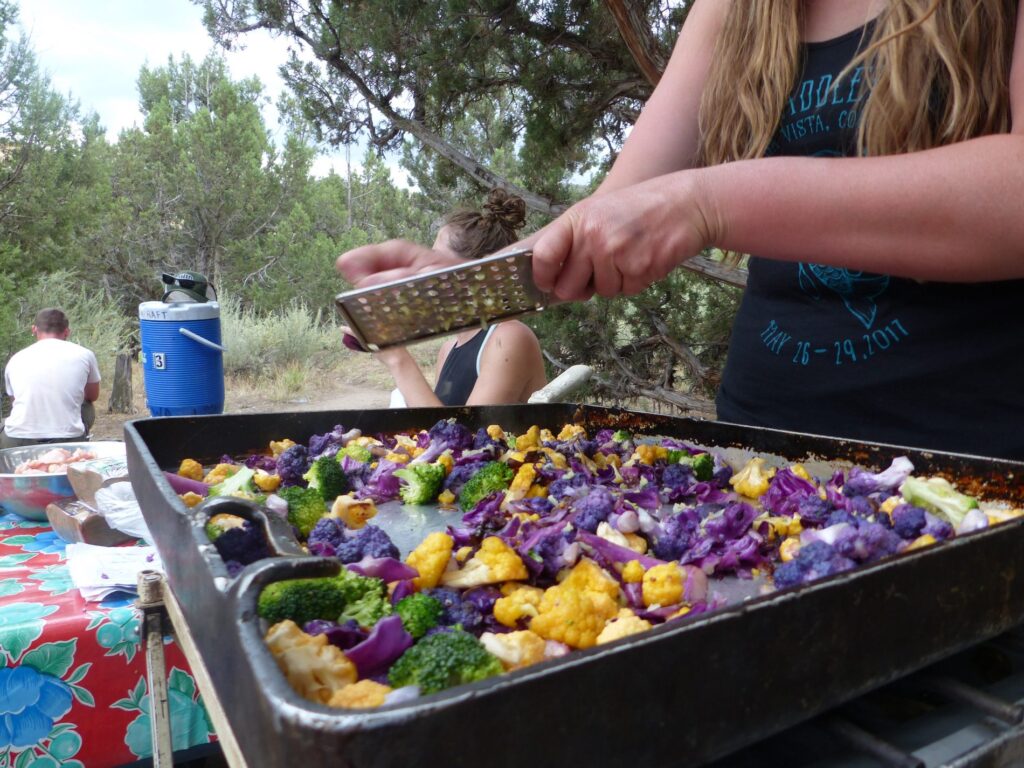
Here at Wilderness Aware, we offer a variety of multi-day rafting trips. If you’re unfamiliar with our multi-day options, let us introduce you. Inclusive to all skill levels and ages, our multi-day trips are next level. Set across six different rivers in two states, rafting trips are first and foremost about time in the water. Our skilled guides run through a safety and gear check, then get you straight to the water to begin your whitewater adventure. The day doesn’t stop once you get off the boat; here’s a look at what to expect on a multi-day trip. Camping in Comfort We fill one of our rafts, lovingly named the “Pig Rig,” to the brim with all the supplies you could need on your campout. This big rig coasts down the river before your trip begins, and we set up a fully equipped campsite. Expect access to a bathroom system set up for your privacy and needs. We also set up a fully equipped kitchen serving everything but your typical camp food. Dining in Style What kind of food, you ask? We have fun creating our camp menus, and our guests rave about the results. Depending on the day, you can expect things like spinach artichoke dip as an appetizer, salad, chicken, steak, or salmon on the grill, roast veggies, dutch oven lasagna, cheesecake for dessert, and tea and coffee after dinner. In the morning, wake up to an omelet bar, bacon, sausage, and hot coffee. Chill Vibes Our signature setup of comfy chairs around a cozy campfire awaits after a long day on the river. This is a place to talk, share stories, play games, relax, and enjoy the view. Meal prep and dishwashing are all taken care of, making it the ultimate wind down after a day of rafting. Trips range in location, price, and number of days. The best way to choose the right package for you is to read about each of our multi-day trips. Claimed to be “one of the best times of my life” from a happy guest, try an adrenaline-filled multi-day rafting trip this spring and see for yourself.
2023 Snowpack
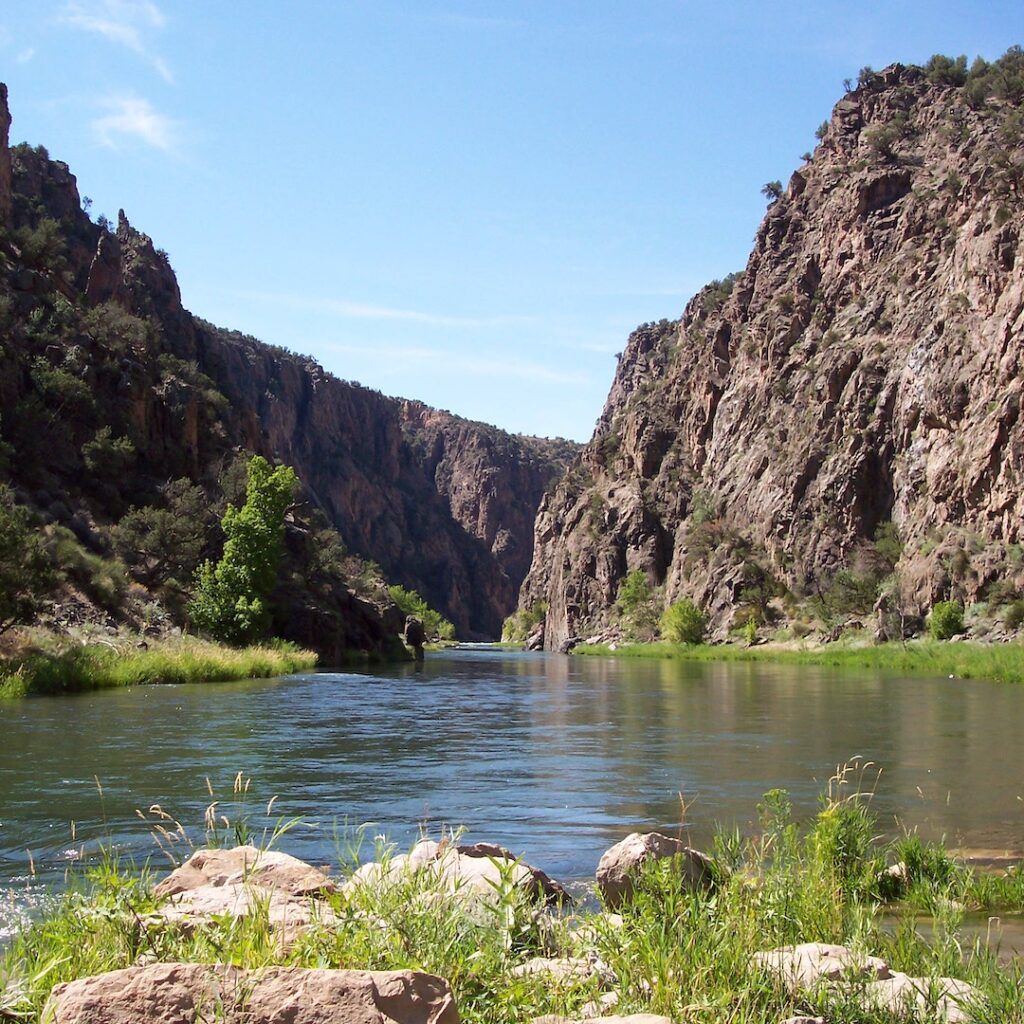
As the summer months approach, many Coloradans are anxiously awaiting the start of whitewater rafting season. Colorado’s snowpack on surrounding mountains holds promising predictions for river conditions, despite droughts in recent years. This is good news for rafters. Each year, Colorado snow plays an important role in water levels in the Colorado River systems. Wyoming and Utah have also had significant snowfall this year, which could bring additional support to the Colorado River basin. Many mountains surrounding the Dolores, Gunnison, and North Platte have above-average snowpack levels, which could lead to excellent rapids come spring. While the Arkansas River currently has slightly below-average snowpack, snowstorms are still in the forecast. As we head into the season, we’ll be able to enjoy a few more weeks of snowboarding before switching out to rafts and kayaks. With a promising season ahead, book your trips now so they don’t fill up. Check out some of our videos of rafting the Gunnison, as it’s an experience you have to see to fully believe. Our knowledgeable guides will not only keep you safe but provide an entertaining and unforgettable experience.
Ultimate Travel Snacks – Play Hard, Snack Hard
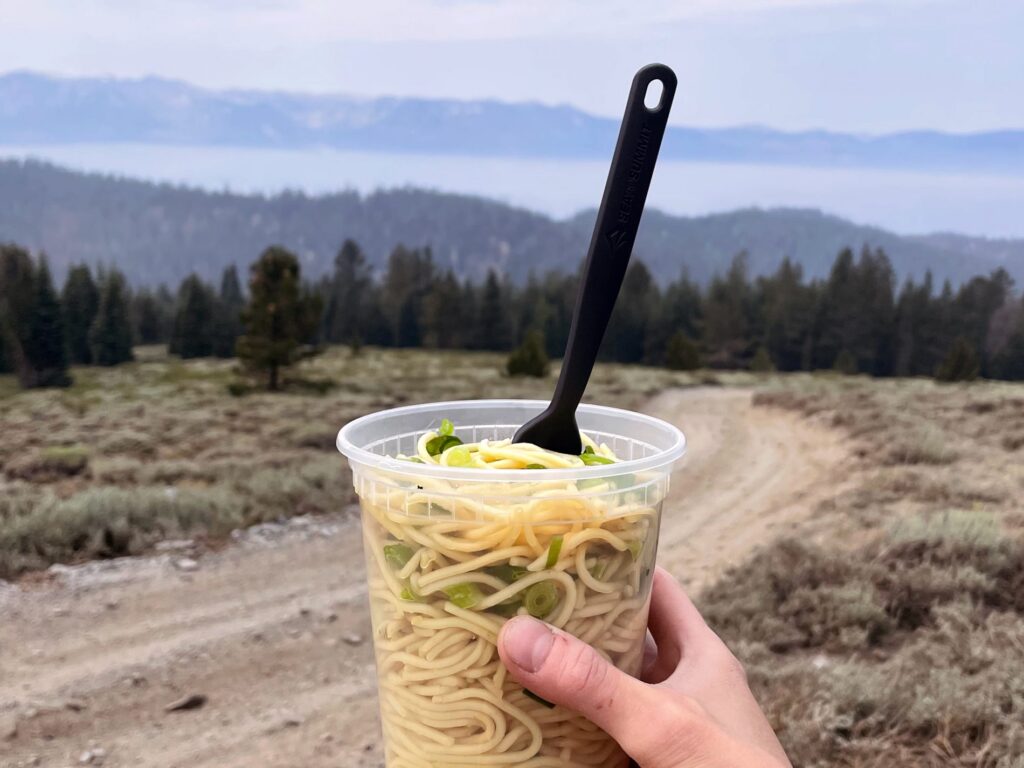
In a quick departure from our regular programming, we bring you a compilation of ultimate travel snacks to take with you on the road or in the raft. These snack ideas travel well and offer a little more than the utility Cliff Bar stuck to the bottom of your bag for months. Mix and match or put your own spin on these suggestions: 1. Bada Bean Bada Boom Roasted beans in a bag? Are you sure? Fear not, these little beans are delightfully crunchy, salty, and tasty. These packaged beans can take a beating and still hold up for an unexpectedly satisfying snack. 2. Patagonia Spicy Mango Sweet and spicy, these ethically sourced mango bits are the warhorse of travel snacks, offering high fiber and Vitamins A & C. 3. Clif Espresso Bar Tired of the usual Clif Bar? The crunch of espresso beans in this version adds intrigue and a caffeinated boost to the regular Clif Bar experience. 4. Epic Beef Jerky / Kettle Pickle Chips It’s a hamburger, really. Eat them together or on their own for a solid snack. 5. For the Cooler Whether you’ve got the Coleman, the Yeti, or the Dometic, push your cooler snacks further than a couple of cold beers. Throw in some hard-boiled eggs, prosciutto-wrapped mozzarella sticks, and any cheese sticks, or go wild and make some ginger scallion noodles in a reusable tub. 6. Banana Bread Another hard-working, potassium-enriched snack that not only satisfies but uses up all those spotted bananas on your counter. 7. YumEarth Licorice These gummy snacks are organic and sophisticated, with simple ingredients that satisfy just the same. 8. Instant Coffee I see you cringing Aeropress users. It may be low-brow, but nothing beats instant coffee when you’re tired, and your bones are aching. 9. Nora Tempura Seaweed Have you ever had tempura seaweed? One bite of these and you’ll be ordering them by case. Thank them later for replenishing vitamins A, B6, B12, protein, iron, and fiber. 10. LMNT packets Use these electrolyte packets to both hydrate and replace salt.

